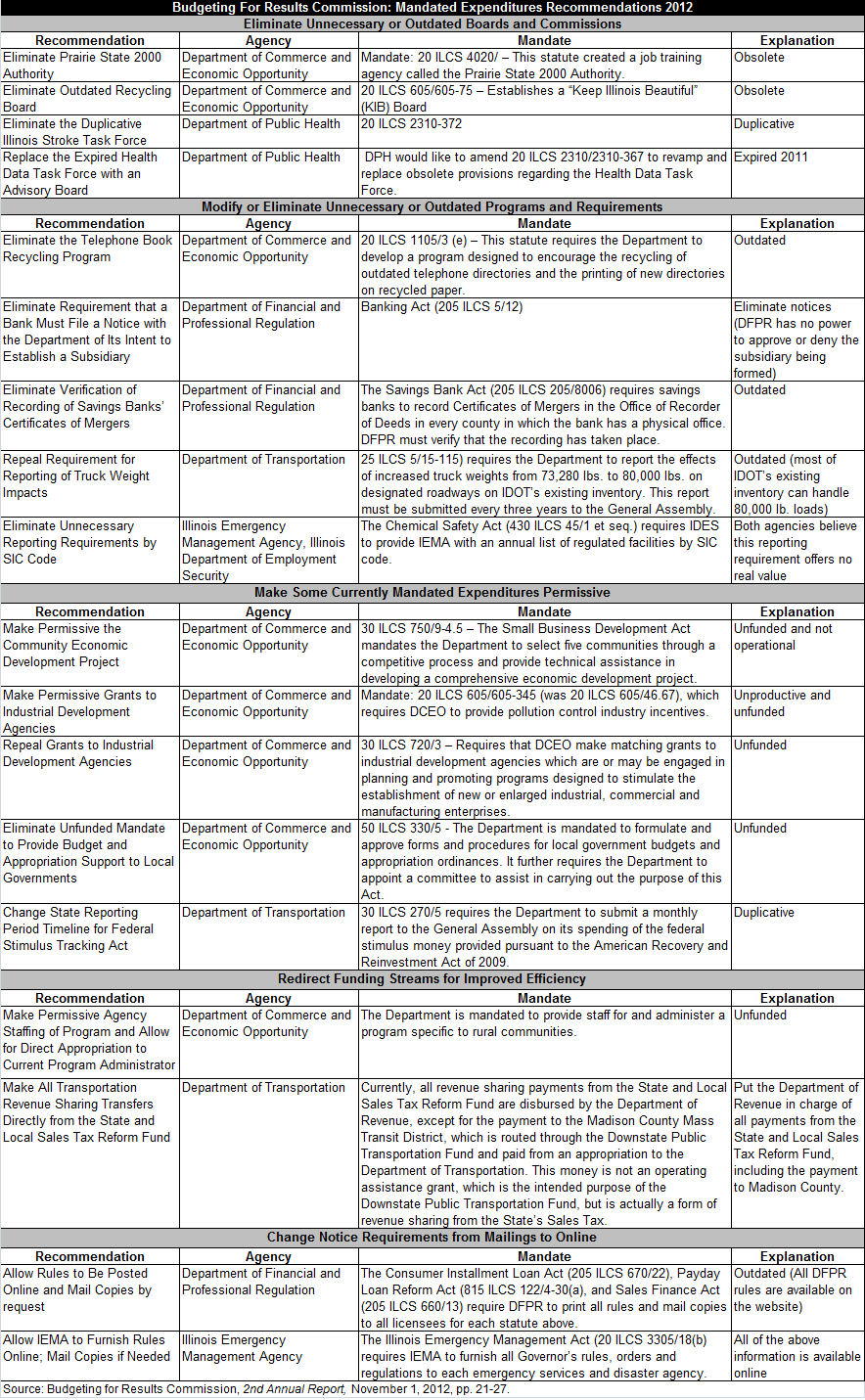November 16, 2012
In its second annual report issued earlier this month, the Illinois’ Budgeting for Results Commission called for the elimination or replacement of mandated expenditures including statutorily required boards and commissions, program initiatives, fund transfers and other expenditures currently required under Illinois law but judged to be outdated or obsolete.
Mandated expenditures direct agencies by law to take specific actions or provide services to particular populations or interest groups. Under the Budgeting for Results statute, one of the tasks the commission is charged with is proposing the elimination of mandates. The commission, which is appointed by the Governor and includes members of the General Assembly, academics, budget experts and representatives of service organizations, did not recommend the elimination of any specific mandates in its first report published in 2011. According to last year’s report, the State has more than 1,700 specific mandates dictated by State law, federal law or both.
To facilitate a review of these expenditures for its 2012 report, the Commission established a Mandates Committee that worked with five specific agencies to identify mandates that were unnecessary, duplicative or represented overly burdensome statutory requirements. The agencies included the Department of Commerce and Economic Opportunity (DCEO), Department of Professional and Financial Regulation (DFPR), Department of Public Health (DPH), Department of Transportation (IDOT) and the Illinois Emergency Management Agency (IEMA).
Through this process the Commission was able to identify 18 specific mandates that it would recommend for elimination. The unnecessary legislative requirements identified in the report range from requiring administrative mailings that can now be facilitated online to specifying particular staffing for rural programs at the Department of Commerce and Economic Opportunity.
The following table shows the Commission’s recommendations on mandated expenditures. (Click to enlarge.)
The commission’s report does not estimate savings associated with the elimination of these mandates but states that each item does have either a cost associated with it or it has been flagged as an issue during an audit. According to the report, the Mandates Committee will continue its review of these legislative requirements with additional agencies in years to come.
Under the Budgeting for Results legislation the General Assembly may object to any of the commission’s recommendations by passing a joint resolution that details its objections.
The commission’s report also includes an update on the original 22 recommendations that it issued in the 2011 report and provides 18 new recommendations for 2012. Many of the new recommendations build on the budget reform suggestions in the group’s first report.
Beyond the elimination of mandates and other budget reform recommendations, the report also provides an update on its performance measurement and prioritization efforts. A major goal of Budgeting for Results is to implement a method of measuring the effectiveness of State-funded programs in reaching predetermined goals and prioritizing spending in the annual budget accordingly. The report concludes that this process will take another three years to roll out as the State begins to measure the effectiveness of programs in FY2013, establishes performance targets in FY2014 and is then able to analyze the value of individual programs based on this data in FY2015.

